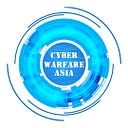How “Hack- for- Hire” became a booming industry despite of the technical monopoly and legal scrutiny?
Talking about the origin of the “Hackers for Hire”, their initial customers were a small group of countries who associated with few Cyber pioneers and began experimenting with the surveillance and intelligence technologies for achieving state objectives. Some of these companies took a big leap as their experiments were found to highly successful and demand for their services increased internationally.
Despite, the strong national presence of these companies, it still required the Geo-political alignment to serve abroad. Hence, these companies were not able to serve with the same parent companies and started registering new companies to serve abroad in different geographies.
Such developments after the western nations were first noticed in the East when Israeli companies like NSO Group came in limelight for providing their special surveillance software to developing countries which was criticized for breaching human rights.
NSO Group came in limelight in 2016 when its surveillance software, Pegasus was reported to be used by UAE for targeting human rights activists Ahmed Mansoor. This software is a tool that grasps software flaws to hack iPhones and turn control over to NSO group’s clients. Mansoor is still in prison on charges of panning the country’s regime.
The company was based in Israel and faced various legal charges from both social media giants and other authorities which led to the downfall of the company but not the technology. Soon various Israeli off-shoots emerged having the same technology as NSO Group.
Shell companies and the global network of NSO groups are spread all across the world. The Israeli group has been operating in Eastern Europe, Africa, Asia, and Latin America; mostly in countries with weak regulatory bodies. It has been disclosed that NSO Group operates through several shell companies; all of which use a unique name. It is known as Q Cyber Technologies in Israel, OSY Technologies in Luxembourg, and by the name of Westbridge in North America.
A few months back, Israel-made spying tools were bought for Bangladesh’s intelligence service, even when the South Asian country has neither been recognized by Israel nor has a geopolitical alignment with it.
Another Israeli Company — “Quadream” was found to be involved in selling cyber-espionage tech services to Saudi Arabia. The services were used to hack the smartphones of dissidents and spy on the communications of the opponents of Crown Prince Mohammed bin Salman (MbS).
Candiru, an Israeli firm specializing in cyber-intrusion, received investment from Qatar Investment Bank. According to the Citizen Lab report, Candiru’s exploits have been linked to nation-state malware attacks observed in Uzbekistan, Saudi Arabia, Qatar, Singapore, and the United Arab Emirates (UAE).
It was also discovered that Candiru likely made sweet deals with Uzbekistan’s National Security Service, Saudi Arabia, UAE, and Singapore’s intelligence services, which was also a company linked to Qatar’s sovereign wealth fund. Meanwhile, Spain’s Excem Technologies appears to be an outpost for Israeli cybersecurity developers.
Other Hack-for Hire companies that would fall on the path of NSO Group seem to be Hacking Team. In 2014, this Italian Hacking Firm was penalized for selling its “untraceable” spyware to dozens of realms without regard for human rights or privacy violation.
Gamma Group came into eminence during the Arab Spring Protests. This hack-for-hire group was selling spyware to tyrants in the Middle East to track dissenters and conduct foreign espionage over the internet.
According to a WikiLeaks report, Qatar’s State Security Bureau (SSD) has been a client of Gamma Group. WikiLeaks appraised that the cost of the licenses sold to Qatar was around €683,700 (QR3.22 million). It appealed to have a concrete list of 17 suspected customers, such as police departments or intelligence agencies from Australia, Bahrain, Bangladesh, Belgium, Bosnia-Herzegovina, Estonia, Hungary, Italy, Mongolia, Nigeria, Netherlands, Pakistan, Singapore, Slovakia, Qatar, South Africa, and Vietnam.
Cytrox, (a North Macedonia-based spyware creator) was found out using a “vast” set-up of web spheres imitating legitimate news sites to target the iPhone and Android devices of its victims.
BAE System, Britain’s biggest surveillance company known for furtively selling mass surveillance technology to six Middle Eastern managements was criticized for repressing their citizens. The company’s equipment has been sold in recent years to the governments of Saudi Arabia, UAE, Oman, Qatar, Algeria, and Morocco, the BBC reported.
Global Risk Advisors- U.S.-based firm facilitated Qatar to spy on soccer officials as part of a no-expense-spared exertion to win and embrace on to the 2022 World Cup tournament.
Circles- Bulgaria-based scrutiny firm, that sells offensive cyber technology exclusively to nation-states, is a sister company of Israel’s notorious spyware group NSO. According to The Citizen Lab, Circles’ expertise activates by exploiting a common signal flaw in the universal mobile phone system to permit call and text prying as well as tracking of phones.
Given the critical assignments taken by the Hack-for Hire industry has been facing harsh legal scrutiny give way to various technological offshoots. Earlier this month, Israel’s Defense Ministry said it was tightening oversight over cybersecurity experts to avert abuse.
The Biden supervision last month added NSO Group and another Israeli firm, Candiru, to a blacklist that bars U.S. corporations from providing them with technology.
Overall it’s clear that Israel’s cyber intelligence companies are spreading their wings across the world and making it a “technology hub”. It wouldn’t be wrong to say that the Israeli espionage industry has spearheaded the global commerce in surveillance tools and communications interception.
